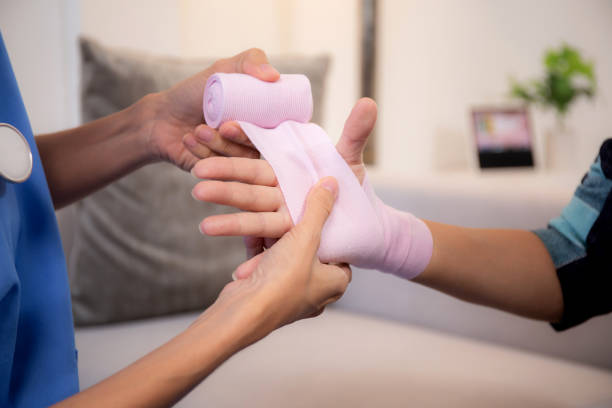A wound care center is a specialized medical facility dedicated to treating acute, chronic, and complex wounds that require more than standard first aid. These centers are equipped with advanced technology, highly trained healthcare professionals, and individualized treatment plans to promote optimal healing. Conditions such as diabetic ulcers, post-surgical wounds, pressure sores, and traumatic injuries often require this level of specialized attention. Patients who visit a wound care center may also have other health concerns, such as ear discomfort, that can be addressed through ear pain treatment. By providing a holistic approach, these centers ensure that all aspects of a patient’s health are supported, resulting in faster recovery and improved quality of life.
Comprehensive Evaluation for Effective Healing
The healing journey begins with a thorough and personalized evaluation at the wound care center. During this process, medical specialists assess the size, depth, and severity of the wound, as well as any underlying health conditions that could impact recovery. For example, a patient with diabetes or circulation issues may require additional precautions. The evaluation also considers lifestyle factors, nutrition, and any concurrent symptoms, such as ear discomfort that might benefit from ear pain treatment. This comprehensive assessment allows healthcare providers to create a targeted treatment plan that addresses the wound itself and the patient’s overall health, ensuring nothing is overlooked in the healing process.
Advanced Treatment Methods for Faster Recovery
A leading wound care center uses cutting-edge techniques and therapies to accelerate the healing process. These may include debridement to remove damaged tissue, specialized dressings that promote moisture balance, negative pressure wound therapy to draw out infection, and hyperbaric oxygen therapy for improved tissue regeneration. The choice of treatment depends on the wound’s type and stage, as well as the patient’s medical history. By combining these advanced methods with coordinated care — such as addressing related health issues through ear pain treatment, wound care centers help patients heal more effectively. This integrated approach ensures the body is in the best possible condition to repair itself.
Preventing Infections and Complications
One of the most critical aspects of wound management is infection prevention. Infections can delay healing, cause significant discomfort, and in severe cases, lead to hospitalization or even life-threatening complications. A wound care center takes proactive steps by using sterile techniques, advanced dressings with antimicrobial properties, and thorough patient education on at-home wound care. If a patient has other ongoing health issues — for example, recurring ear discomfort that requires ear pain treatment — these are addressed simultaneously to keep the immune system strong. This multi-layered strategy helps ensure that patients recover quickly and with minimal risk of further health problems.
Specialized Care for Chronic and Non-Healing Wounds
Chronic wounds, such as diabetic foot ulcers, venous leg ulcers, or pressure sores, require ongoing care and specialized medical oversight. A wound care center provides continuous monitoring and adjusts treatment plans based on how the wound responds over time. These centers also use advanced imaging and diagnostic tools to track healing progress. In some cases, patients dealing with multiple conditions — like those who also need ear pain treatment. Benefit greatly from coordinated, multi-specialty care. This ensures that no aspect of their health is neglected, and that both wound recovery and overall wellness are prioritized.
Pain Management in Wound Care
Pain is an inevitable part of wound healing, but effective management is essential to maintain patient comfort and encourage treatment adherence. A wound care center offers a range of solutions, from local anesthesia during procedures to specially designed dressings that minimize discomfort. Pain management isn’t limited to the wound itself — if a patient experiences ear discomfort, timely ear pain treatment can improve their overall comfort level. By reducing physical stress, the body can focus its energy on healing, which leads to better and faster results.
Education for Long-Term Healing Success
Beyond treating the wound, a wound care center places a strong emphasis on patient education. Providers teach patients how to properly clean and dress wounds, recognize early signs of infection, and make dietary and lifestyle changes that support long-term healing. This proactive education also covers the importance of addressing other health concerns, such as seeking prompt ear pain treatment when symptoms arise. When patients are equipped with knowledge, they are more likely to follow care instructions, avoid complications, and maintain better health in the future.
Conclusion
A wound care center delivers specialized treatment, advanced technology, and comprehensive medical expertise to help patients heal from both acute and chronic wounds. By focusing on personalized care and integrating services like ear pain treatment, these centers address the patient’s immediate needs while promoting long-term wellness. Through early intervention, infection prevention, pain management, and patient education, wound care centers give individuals the tools and treatments they need to recover fully and maintain a healthy lifestyle.





